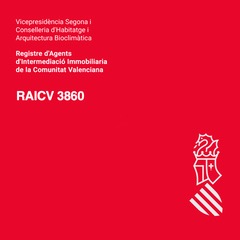
Remote Work in Spain: Living and Working as a Digital Nomad on the Costa Blanca
The rise of remote work has caused a global shift in the way people work and live. For digital nomads in particular, it offers the opportunity to travel the world while still earning an income. One of the most attractive destinations for this lifestyle is Spain, and more specifically, the beautiful region of the Costa Blanca.
What is a Digital Nomad?
A digital nomad is someone who performs their work primarily online, allowing them to be location-independent. These individuals use technologies such as the internet and cloud storage to work from various locations around the world. The work can range from freelance writing and graphic design to software development and online marketing. The freedom to work where and when they want is the biggest attraction of this lifestyle.
Legislation to Promote the Entrepreneurial Ecosystem
The Spanish government has recognized that the increase in digital nomads can bring economic benefits to the country. In an effort to stimulate this growth, the Ley de Fomento del Ecosistema de las Empresas (Law to Promote the Entrepreneurial Ecosystem) has been introduced. This law is aimed at promoting innovation, entrepreneurship, and attracting talent from around the world.
The law offers various benefits for digital nomads and entrepreneurs, including tax advantages, simplified immigration procedures, and support for startup companies. These measures make it easier for foreigners to work and live in Spain, contributing to a dynamic and diverse economic climate.
Benefits of Remote Working on the Costa Blanca
The Costa Blanca is one of the most popular regions in Spain for digital nomads, and for good reason. Here are some benefits of working remotely in this beautiful region:
- Mild Climate: The Costa Blanca enjoys a Mediterranean climate with warm summers and mild winters, ideal for those who want to enjoy the sun year-round.
- Lower Cost of Living: Compared to other European countries, Spain offers a relatively low cost of living. Accommodation, food, and transport are often cheaper, making it attractive for digital nomads who want to manage their expenses.
- Rich Culture and History: Spain has a rich cultural history, and the Costa Blanca is no exception. From historic cities like Alicante and Valencia to traditional festivals, there is always something to discover.
- Excellent Connectivity: The region has excellent infrastructure, with fast internet connections and good transport options, including international airports and train services.
- Friendly Community: There is a growing community of expats and digital nomads on the Costa Blanca. These networks offer support, social activities, and collaboration opportunities for like-minded individuals.
Opportunities to Work Remotely on the Costa Blanca
The Costa Blanca offers numerous opportunities for those seeking an inspiring place to work:
- Coworking Spaces: There are many coworking spaces spread across the region, offering flexible workspaces and facilities for both short and long-term needs.
- Cafés and Restaurants: Many cafés and restaurants cater to digital nomads, offering free Wi-Fi and a welcoming environment to work.
- Nature and Recreation: In addition to work, there is ample opportunity to enjoy the outdoors. From hiking in the mountains to relaxing on the beaches, the Costa Blanca has something for everyone.
Conclusion
Remote working on the Costa Blanca offers a perfect balance between work and leisure. With the support of Spanish legislation and the attractive lifestyle the region offers, it is no surprise that more digital nomads are choosing to base themselves here. Whether you are looking for adventure, culture, or simply a pleasant place to work, the Costa Blanca has it all.
With the benefits of the Ley de Fomento del Ecosistema de las Empresas, Spain is well on its way to becoming an important hub for digital nomads worldwide.
The Ley de Fomento del Ecosistema de las Empresas, also known as the Startup Law, is a Spanish legislation introduced to promote the business climate and make Spain more attractive to startups and digital nomads. This law is part of a broader range of reforms aimed at stimulating innovation and entrepreneurship in the country. Here is an overview of the key aspects and objectives of the law:
Key Features of the Law
- Tax Benefits:
- Reduced Corporate Tax: Startups are eligible for a reduced corporate tax rate, which is lowered to 15% (instead of the normal rate of 25%) during the first four years of profitability.
- Deferred Tax Payments: Startups can defer their tax payments for up to 12 months without having to pay interest.
- Simplified Administration:
- Faster Company Formation: The process of setting up a company has been simplified and digitized, allowing it to be completed in just a few days.
- Reduction of Administrative Burdens: The law provides for reducing bureaucratic barriers, making it easier to run a business.
- Support for Innovation and Research:
- Incentives for Research & Development: Companies investing in research and development can benefit from tax deductions and subsidies.
- Collaboration with Universities: The law encourages collaboration between businesses and educational institutions to promote innovation and knowledge transfer.
- Attracting Talent:
- Digital Nomad Visa: The law introduces a visa for digital nomads, making it easier for foreigners to live and work in Spain. This visa is specifically designed for people who work online for non-Spanish companies.
- Attracting International Talent: The law offers tax benefits and facilitated immigration procedures for highly skilled professionals who want to move to Spain.
- Financing and Investment:
- Access to Capital: The law facilitates access to financing for startups, including by encouraging investments from business angels and venture capital.
- Crowdfunding and Alternative Financing: Measures have been taken to support and regulate alternative financing methods, such as crowdfunding.
Objectives of the Law
The law aims to make Spain an attractive destination for entrepreneurs, investors, and digital nomads by:
- Promoting Economic Growth: By stimulating the emergence of new businesses and innovation, the law contributes to economic growth and job creation.
- Strengthening Competitiveness: By creating a more favorable environment for startups, Spain aims to become more competitive in global technology and innovation markets.
- Attracting International Talent and Investments: The law is designed to make Spain more attractive to international talent and investments, contributing to a diverse and dynamic economic ecosystem.
Impact on Digital Nomads
For digital nomads, this law is particularly beneficial. It provides them with the opportunity to live and work in Spain with less administrative hassle and attractive tax advantages. The introduction of the Digital Nomad Visa is an important step in positioning Spain as one of the top destinations for people who want to combine the flexibility of remote working with a high quality of life.
In short, the Ley de Fomento del Ecosistema de las Empresas offers a comprehensive set of measures that are beneficial not only for local entrepreneurs but also for international digital nomads and investors who want to take advantage of the many opportunities Spain has to offer.
















